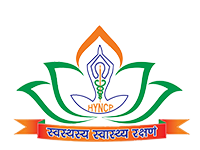
Fasting Therapy
Naturopathy is a systematic system of healing which believes that the root cause of most of diseases is the assemblage of toxic matter in the digestive system. Fasting has been regarded as one of the prominent techniques of naturopathy. It promotes the idea of natural healing without consuming any chemicals. Fasting therapy is an act of will that constrains one from consuming food, drink or both for a certain period of time. The word ‘Fasting’ is derived from the old English, ‘Feastan’ which means to fast and observe. In Sanskrit, ‘Vrat’ means ‘Upasana’ which means ‘near to god’.
In Naturopathy, fasting is performed to enable nature to start its cleaning process in the body and cut down the additional load to digest food. Fasting therapy accentuates the idea of giving rest to the digestive system to regain the health and freshness of the body. This therapy gives digestive organs ample time to restore its efficiency which has been distorted with toxic eating habits. As unhealthy food choices tend to weaken our immune system, fasting therapy is one such natural phenomenon that detoxifies the body to augment immunity, physical, psychological, and sensory wellness in the long run.
Duration of Fasting Therapy
The duration of fasting therapy depends upon the age of the patient, condition of the disease, and the amount and type of drug used before. Under fasting therapy, patients are advised to observe a series of short fasts of two or three days and gradually increase the duration of fast with each succeeding day. It is also a mere fact that prolonged fasting should be performed under the supervision of a specialized naturopath to ensure that no harm will accrue to fasting patients. During Fast therapy, the patient should not take part in any strenuous mental activities like official work or business-related work.
Methods of Fasting
Fasting therapy is often done by water, juices, or raw vegetable juices but the most effective method of fasting is lime juice fasting. During fasting, the body is expected to burn up huge amounts of amassed wastes of the body. Juices play an important role in fasting therapy but must be prepared from fresh fruits and canned or frozen juices should not be counted in fasting therapy.
Generally, the precautionary method which must be observed in fasting therapy is emptying of the bowels completely at the beginning of the fast by enema to make sure that the patient would not get bothered by gas or decomposing matter formed from the excrement. It is a notable point that Enemas must be used at least every alternate day during the fasting period and total liquid intake should be around six to eight glasses. The main motive of observing fasting is to get as much physical rest and mental relaxation as possible.
Benefits of Fasting Therapy
- From ancient times, physicians of most cultures have suggested extended fasting as therapy for several physical or mental conditions. Many observations were based on animal behavior but today, they are based on animal physiology. Below are the points which prove how fasting could be useful in promoting one’s health. The most prominent physiological effects of Calorie Restriction and Intermittent Fasting are:
- Reduced level of oxidative stress as indicated by decreased oxidative damage to proteins, lipids, and DNA
- Increased resistance to several types of stress including heat, oxidative and metabolic stresses.
Improved Immune Function
Calorie restriction (CR) or intermittent fasting regimes profoundly affect both gross and cellular physiology. As per gross physiology, there is a significant reduction of body fat and mass which brings down incidents of myocardial infarction and supports a healthy cardiovascular system. The alternative stores present in the body such as ketone bodies like β-hydroxybutyrate enable homo-sapiens to cope with the additional stress of life. Apart from treating disorders like obesity, asthma, indigestion, gas formation, and many more, Fasting also confers rest to the different organs of the body.
